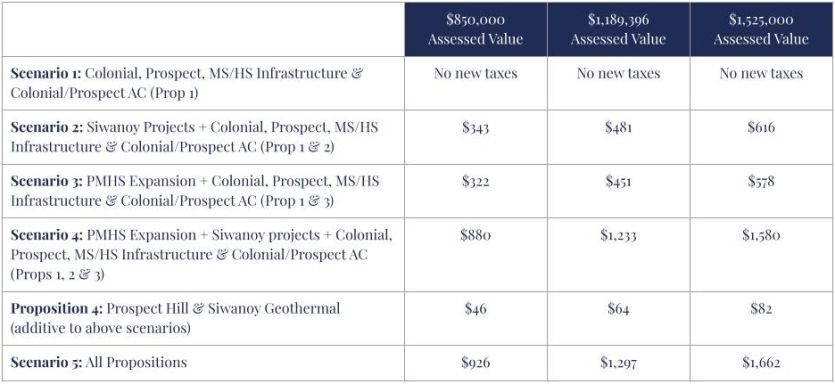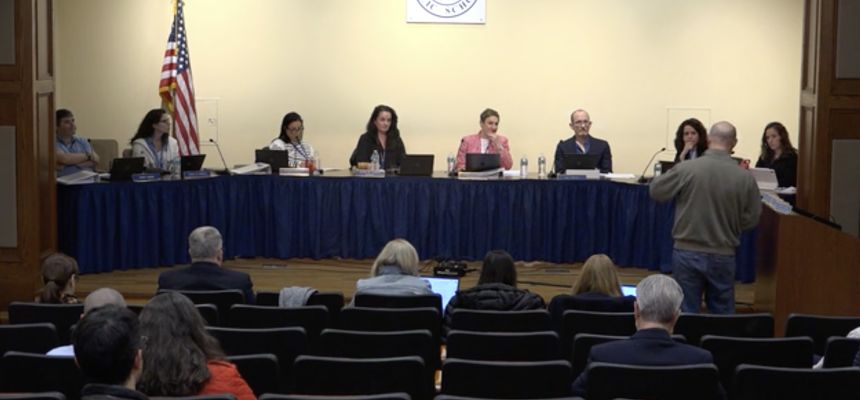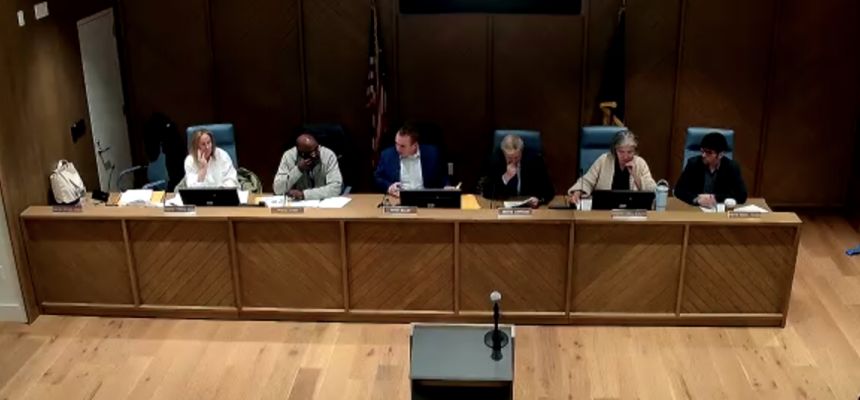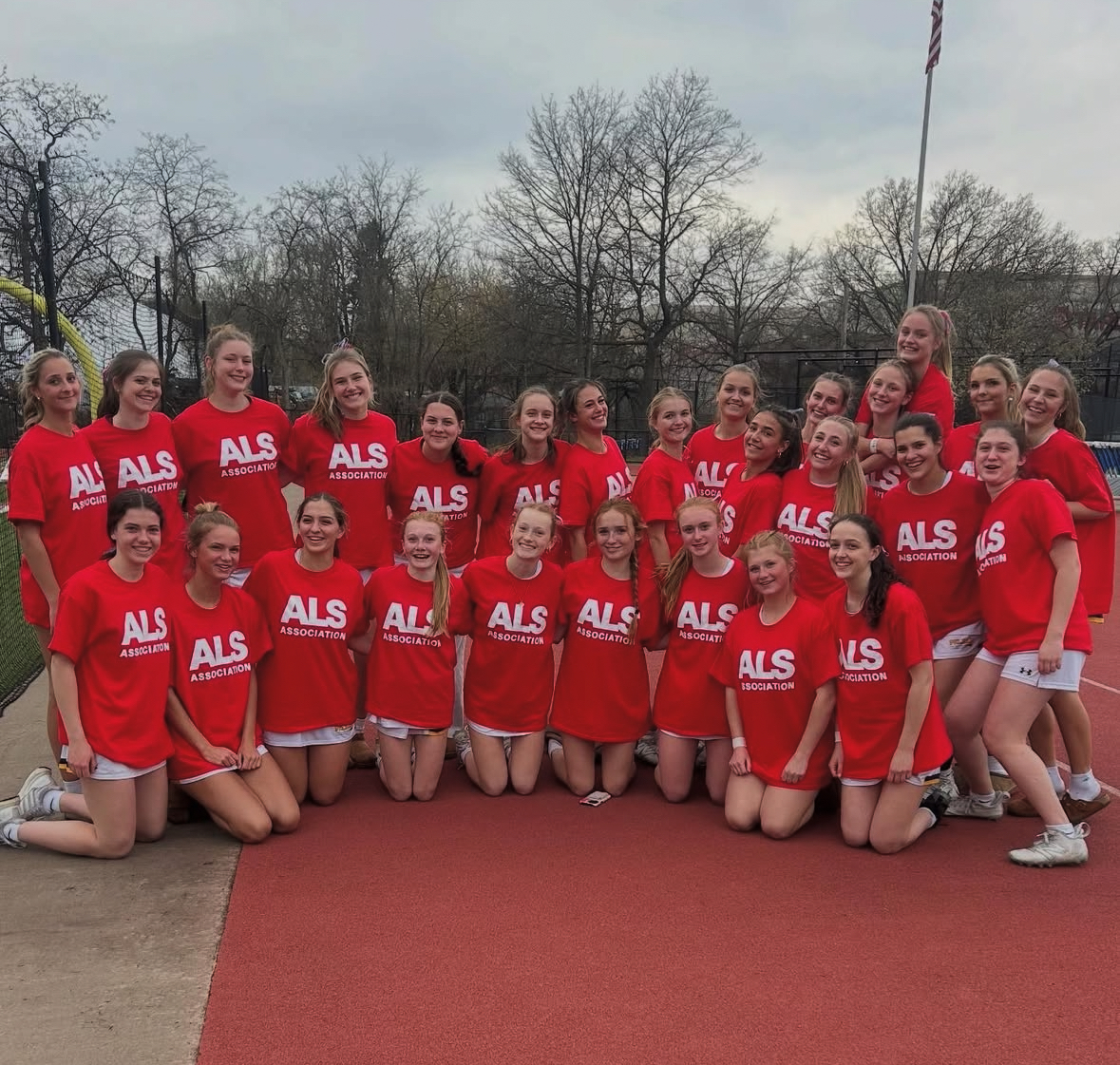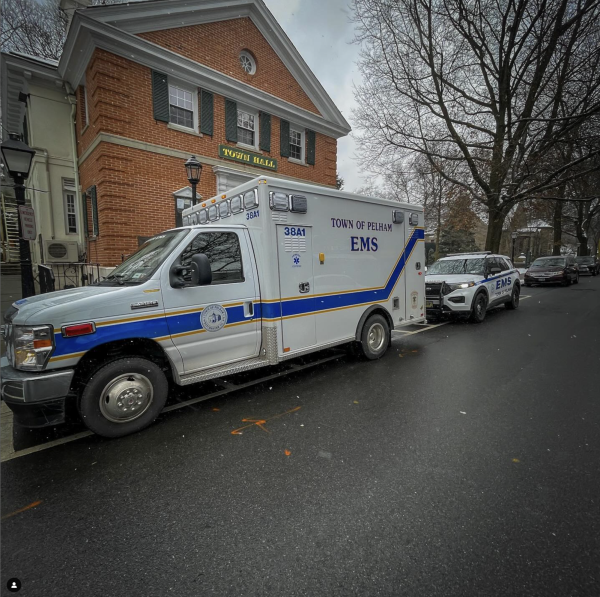
The new Pelham ambulance staffed by the Eastchester Volunteer Ambulance Corps improved emergency medical response significantly in January and February, said Deputy Town Supervisor Rae Szymanski in an interview.
“Within the first two months, we’re under five minutes in response time, both the fly car and the ambulance. Before, we sometimes had ambulances with a 12-minute waiting time,” said Szymanski, who has overseen emergency services in Pelham for 21 years as a member of the town council.
The town is currently looking for a permanent home for the rig, which went into service Jan. 1 when the contract with the Eastchester ambulance company started.
“Right now, the ambulance is sitting in the town parking lot for 12 hours a day, and the fly car is in Pelham Manor,” Szymanski said. “The other 12 hours, the ambulance is in Eastchester. It works right now this way, but this will not be long term. They will be housed 24/7 in the Town of Pelham somewhere.”
Before Pelham signed the service contract with the Eastchester Volunteer Ambulance Corps (EVAC) and state funds were used to purchase an ambulance for the town, Empress Emergency Medical Services provided a paramedic to staff the town fly car, which provides first-response medical assistance but can’t transport patients. Empress was also supposed to send ambulances to Pelham when needed, but that service deteriorated over time, said Szymanski and Dr. Michael Lahn, Town of Pelham EMS medical director.
When Pelham signed a contract with Empress 20 years ago, “there weren’t these significant issues,” Lahn said. “They built over and over as employers expanded and circumstances changed.”
The issue in Pelham came to a head in May 2023 when the town board called an emergency meeting to discuss the death of a resident after it took 14 minutes for an ambulance to arrive and to provide an update on the council’s efforts to improve EMS. Seven month earlier, the board had put out a request for proposals for a new ambulance company.
Szymanski said the council had been working on a dedicated ambulance since the Covid-19 pandemic began to abate.
This included forming an advisory committee of local experts to develop the RFP.

“Amazingly, for a municipality, I have to say that we moved at light speed,” Szymanski said. “Once we decided that we would go with Eastchester for a municipality, we really didn’t find too many hurdles.”
Lahn said the combination of the ambulance and the fly car allows for treatment to get to more Pelham residents faster: “So if somebody is having chest pain, they’ll get the fly car in many cases under four to five minutes, and then they get an ambulance depending on the time of the day. The beauty of a system like this is that once the ambulance arrives, the initial medic can transfer care, and that medic is now available to handle calls for the rest of the town once again. So not only do we set up a system that can handle first calls, we actually set up a system that can handle second and third calls.”
‘Make Up for Lost Time:’ Pelham Now Helps Neighbors
Operating a full EMS also allows the Town of Pelham to be a good neighbor and offer mutual aid to towns that have been doing that for Pelham for more than two decades.
“The town received many accusations that we were taking other people’s ambulances (from other towns), and we didn’t have our own ambulances to provide back out,” said Lahn, a Pelham resident who served many years as medical director for EVAC. “When a situation occurs in New Rochelle or Mount Vernon, and the number of EMS calls exceeds the number of vehicles that are able to provide care, they will call for mutual aid from surrounding communities. So one of the things the town wanted within this contract is to make up for lost time and provide mutual aid. Within the first three months of the system, we’ve provided aid to Eastchester, Bronxville and Mount Vernon.”
The contract with the Eastchester corps calls for educational programs for Pelham residents, said Mark Baumblatt, EVAC director of operations. “We’re going to be scheduling some summertime CPR programs that will be free to residents, providing some gatherings responding to sports injuries and more. We also talked about giving presentations to the school district about EMS as a career path, as well as some interactions with senior citizens in the library.”
“Something else to note is that (Pelham) actually gets revenue back from the medical insurance companies for the transports of all the patients within the town,” Baumblatt said. “Part of the agreement that EVAC has with the Town of Pelham is that we split the revenue, so the town can use the revenue in the future. There are no other systems around that split the revenue. We wanted it to be a true partnership, so we were happy to split the revenue and make sure that everybody got what they needed to be able to perpetuate what we’re trying to do.”
“This process has been a lot, but it’s worth it,” Szymanski said. “You can’t put a price on someone’s life. So this community must do what it needs to do, whether that means raising taxes a little bit or getting our own ambulance, we decided that was the bottom line, and we had to do the best for our community.”
Baumblatt encouraged residents to follow the service on its Instagram, @townofpelhamems, the website pelhamems.com or contact him at info@pelhamems.com.
- The village boards and the town council make decisions that affect Pelham’s residents. The Pelham Examiner brings the discussions, the policies and the votes that impact taxes and neighborhoods. Donate to support our nonprofit community newspaper.



